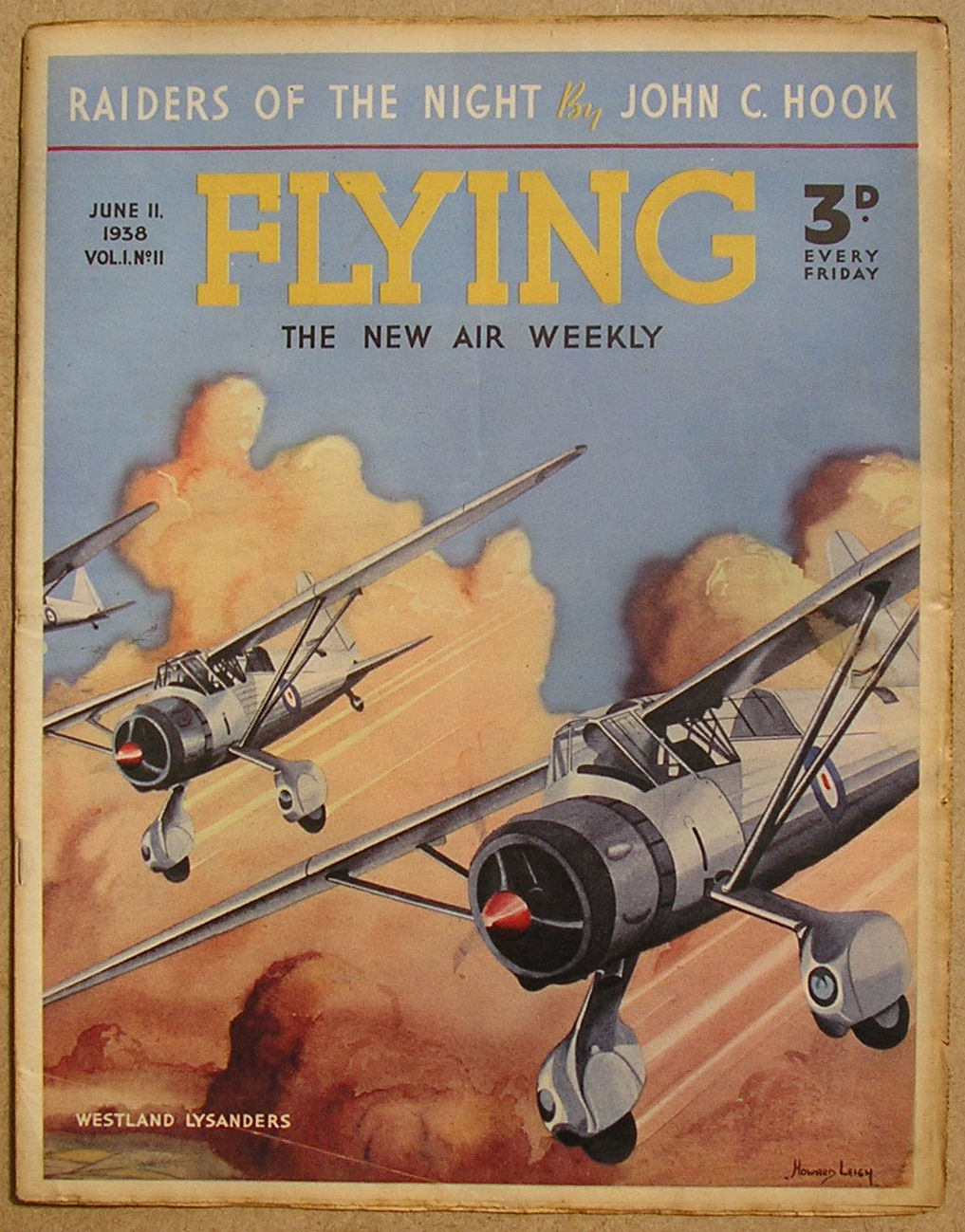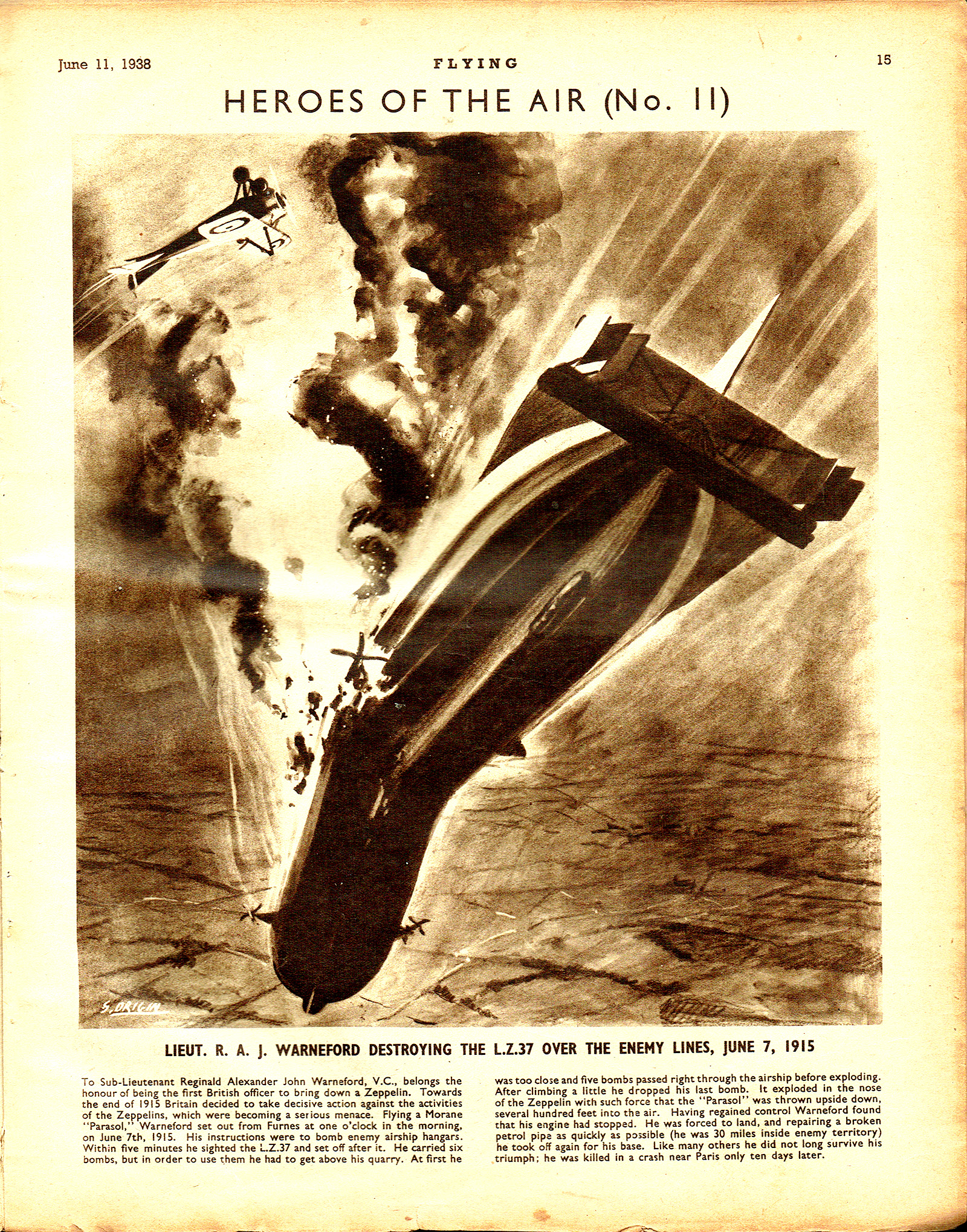Heroes of the Air: Lieut. R.A.J. Warneford
WHEN Flying, the new  weekly paper of all things aviation, started up in England in 1938, amongst the articles and stories and photo features was an illustrative feature called “Heroes of the Air.” It was a full page illustration by S. Drigin of the events surrounding how the pictured Ace got their Victoria Cross along with a brief explanatory note.
weekly paper of all things aviation, started up in England in 1938, amongst the articles and stories and photo features was an illustrative feature called “Heroes of the Air.” It was a full page illustration by S. Drigin of the events surrounding how the pictured Ace got their Victoria Cross along with a brief explanatory note.
Russian born Serge Drigin became a successful illustrator in the UK in the 1920s with his work regularly appearing in such British magazines as The Detective Magazine, Modern Boy and Chums. He is probably best known for his startling covers for Scoops, Air Stories, War Stories, Fantasy and others in the 30s.
From the 11 June 1938 issue of Flying:
LIEUT. R.A.J. WARNEFORD DESTROYING THE L.Z.37 OVER THE ENEMY LINES, JUNE 7, 1915
TO SUB-LIEUTENANT Reginald Alexander John Warneford, V.C., belongs the honour of being the first British officer to bring down a Zeppelin. Towards the end of 1915 Britain decided to take decisive action against the activities of the Zeppelins, which were becoming a serious menace. Flying a Morane “Parasol,” Warneford set out from Furnes at one o’clock in the morning, on June 7th, 1915. His instructions were to bomb enemy airship hangars. Within five minutes he sighted the L.Z.37 and set off after it. He carried six bombs, but in order to use them he had to get above his quarry. At first he was too close and five bombs passed right through the airship before exploding. After dimbing a little he dropped his last bomb. It exploded in the nose of the Zeppelin with such force that the “Parasol” was thrown upside down, several hundred feet into the air. Having regained control Warneford found that his engine had stopped. He was forced to land, and repairing a broken petrol pipe as quickly as possible (he was 30 miles inside enemy territory) he took off again for his base. Like many others he did not long survive his triumph; he was killed in a crash near Paris only ten days later.





